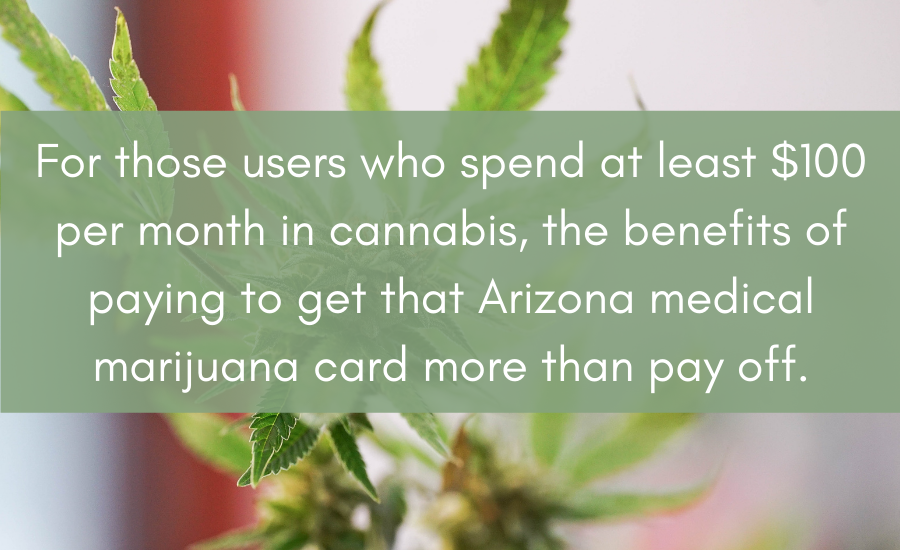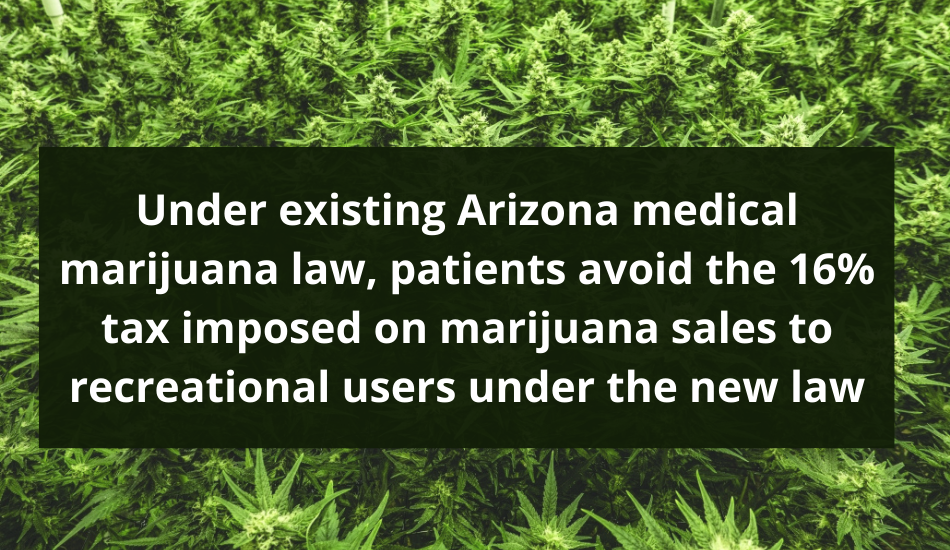Short answer: The tax Proposition 207 imposed on recreational marijuana sales is 16% on top of any prevailing use tax and transaction privilege tax.
On November 4, 2020, the voters of Arizona passed Proposition 207 to legalize recreational marijuana in the state by a wide margin. The vote was 1,951,877, or 60%, in favor of the measure and 1,299,870, or 40%, against the measure, based on a total vote count of 3,251,747.
Under the newly passed constitutional amendment, Arizona residents age 21 and older will be legally permitted to purchase, consume and possess cannabis in the state.
A previous provision similar to the successful Proposition 207 was brought before voters in 2016, at which time it failed to find majority support. A current poll by October Monmouth University now finds Proposition 207 has 56% support for its passage, with 36% opposition.
Read also: What Legal Marijuana Under Proposition 207 Means to Arizona Employees and Employers.
One factor advocates attribute for the increased support this election cycle was an improvement in how the ballot question was phrased. In addition to legalizing cannabis, the measure will also pave the way for those with a prior marijuana conviction in Arizona to have it stricken from their record and will allow for Arizona residents to grow marijuana legally in their homes.
The measure had met with opposition from Arizona’s Republican Governor Doug Ducey who praised the current medical system for adequately addressing the pressing need in the state and decried what he described as “the wholesale expansion full-throttle legalization would bring.” (www.cnn.com/2020/11/04/politics/marijuana-legalization-2020-states/index.html)
Provisions of the Initiative
Under Arizona Proposition 207, adults at least 21 years of age can possess, transfer and consume as much as one ounce of marijuana. Further, the proposition allows for the taxation of legal marijuana purchases and provides for the creation of a regulatory system for the cultivation and sale of marijuana legally in the state. The new law also allows for the expunging of any records for previously convicted marijuana crimes no longer considered criminal under the new initiative. Fittingly, Arizona’s largest county prosecutor is dropping all pending recreational marijuana charges as a result of the provision’s passage.
Under the new law, Arizona adult residents can grow up to six cannabis plants in their residences, provided those plants are contained in an enclosed and lockable location outside of public view.
Proposition 207 also saw the institution of a Social Equity Ownership Program (SEOP) through which marijuana entities run by those from communities particularly hard hit by marijuana law enforcement in the past could now be licensed.
Regulating Legal Recreational Marijuana in Arizona
The Arizona Department of Health Services (DHS) is responsible for coming up with the rules and regulations for the legal, licensed marijuana industry in the state, including to license cannabis retail, cultivation and production facilities. DHS first had to review applications from existing nonprofit medical cannabis dispensaries, which qualify to now hold both nonprofit and for-profit marijuana licenses. DHS also had to initially review potential cannabis businesses in locations within the state with only one or zero non-profit dispensaries currently in operation.

Taxing Legal Recreational Marijuana in Arizona
The tax Proposition 207 imposed on marijuana sales is 16% on top of any prevailing use tax and transaction privilege tax. Revenue from this tax is to be divided amongst:
- Sheriffs
- Municipal police
- Fire districts
- Fire departments
- Community college districts
- A new Justice Reinvestment Fund
- Arizona Highway Use Revenue Fund
The initiative does give local governments the ability to ban marijuana facilities and cannabis testing centers in their jurisdiction if they see fit. Local jurisdictions can also assert some measure of control over factors of licensing, zoning and regulation.
Read also: Official 2022 Arizona Rules and Laws for Medical Marijuana Cards.
Medical Marijuana VS Recreational
As Arizona institutes legalized recreational marijuana, the state’s medical marijuana laws remain in effect. Under existing Arizona medical marijuana law, patients avoid the 16% tax imposed on marijuana sales to recreational users under the new law. It, therefore, only makes sense to keep and renew your Arizona medical marijuana card even whilst recreational legalization gets underway, simply so as to avoid paying unnecessary extra taxes. For those users who spend at least $100 per month on cannabis, the benefits of paying to get that Arizona medical marijuana card more than pay off.
If, after weighing the pros and cons, you decide that medical marijuana is a better option for you, then it’s time to apply for a medical card. You can do it right now: after registering on the site, choose a convenient time to communicate with a licensed specialist who will help you understand whether you can qualify for a medical card and assist you step-by-step in getting it – as quickly and comfortably as possible.

